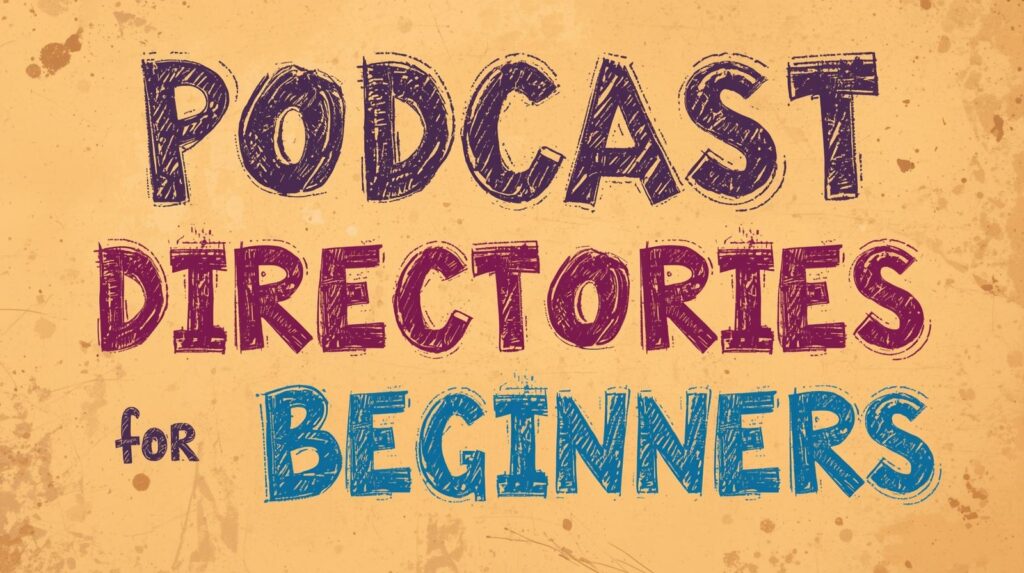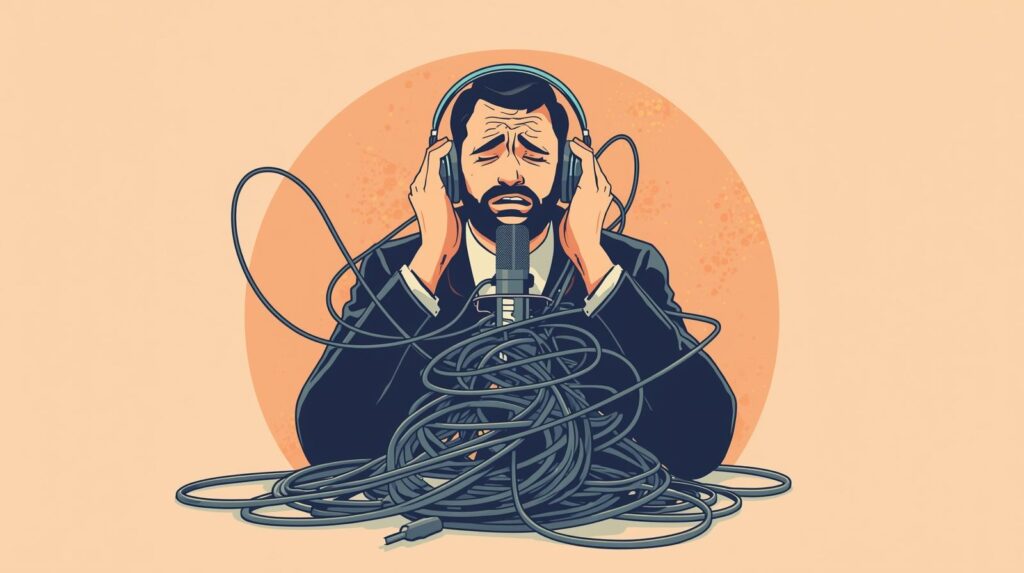Starting a podcast is exciting—but getting people to actually find your show can be a huge challenge. As a beginner, you might worry: How will listeners discover me? How do I grow without spending tons on ads? This is where podcast directories come in. Think of them as the search engines of podcasting. They make your show discoverable, connect you with new listeners, and even boost your chances of ranking in search results.
If you want your podcast to reach the right ears, you need to be on multiple directories. Submitting to just one limits your growth. The good news? Most podcast directories are free, easy to join, and packed with features that help beginners get visibility.
In this guide, you’ll discover 15 of the best podcast directories every beginner should know about. Each one offers unique benefits, from audience reach to built-in promotion tools. By the end, you’ll know exactly where to submit your show and how to make your voice heard.
1. Spotify
Spotify is one of the biggest names in audio streaming, with millions of active podcast listeners worldwide. It’s a must-have for beginners because of its massive reach and user-friendly platform.
Why Beginners Should Use It:
- Huge listener base.
- Easy submission through your hosting platform.
- Strong search and recommendation features.
Special Features: Spotify for Podcasters gives you detailed analytics, listener demographics, and episode performance stats.
2. Apple Podcasts
Apple Podcasts has long been the go-to directory for podcasts. It’s often the first stop for podcasters and listeners alike.
Why Beginners Should Use It:
- One of the largest podcast libraries.
- Being listed here improves your podcast’s credibility.
- Helps with SEO—many apps pull feeds from Apple Podcasts.
Special Features: Apple’s ranking system can boost visibility if you get early subscribers and reviews.
3. YouTube Music (formerly Google Podcasts)
Google Podcasts has officially been sunset, with podcast functionality moving into YouTube Music. This shift gives creators access to YouTube’s massive search engine power and global audience.
Why Beginners Should Use It:
- Direct integration with YouTube’s ecosystem.
- Improved discovery through Google and YouTube search.
- Expands reach to Android and YouTube Music users.
Special Features: You can manage your podcast through YouTube Studio, track analytics, and tap into YouTube’s recommendation algorithms.
4. Amazon Music / Audible
Amazon is making big moves in podcasting. Listing your show here means tapping into Amazon’s massive ecosystem.
Why Beginners Should Use It:
- Access to millions of Amazon and Audible users.
- Strong potential for voice search integration via Alexa.
- Great for reaching audiobook lovers who are also podcast fans.
Special Features: Podcasts on Audible can be featured alongside audiobooks, boosting discovery.
5. Podchaser
Podchaser is often called the “IMDb of podcasts.” It’s a directory where users can review, rate, and build profiles.
Why Beginners Should Use It:
- Boosts discoverability with reviews and ratings.
- Allows networking with guests, creators, and fans.
- Strong SEO presence.
Special Features: You can create a detailed profile and tag your podcast with keywords for better search results.
6. TuneIn
TuneIn is widely known for internet radio but also hosts a massive catalog of podcasts.
Why Beginners Should Use It:
- Built-in audience of radio listeners.
- Available on smart devices, cars, and Alexa.
- Great for increasing reach across multiple platforms.
Special Features: Integration with voice assistants like Alexa makes discovery easier.
7. iHeartRadio
iHeartRadio is another giant in audio, offering live radio, music, and podcasts.
Why Beginners Should Use It:
- Huge U.S.-based audience.
- Trusted brand name adds credibility.
- Often features curated podcast playlists.
Special Features: Opportunities for exposure through featured collections.
8. Stitcher
Stitcher is a long-standing podcast directory popular with both creators and listeners.
Why Beginners Should Use It:
- Dedicated podcast app with a loyal audience.
- Easy to submit and manage shows.
- Offers monetization opportunities.
Special Features: Stitcher Premium offers ad-free experiences, giving creators a chance for exclusive partnerships.
9. Pocket Casts
Pocket Casts is known for its clean design and user-friendly interface.
Why Beginners Should Use It:
- Popular among dedicated podcast listeners.
- Strong recommendation and discovery tools.
- Easy sharing features.
Special Features: Cross-device syncing ensures listeners never miss an episode.
10. Overcast
Overcast is a listener favorite, particularly on iOS.
Why Beginners Should Use It:
- Simple, ad-supported app with a loyal following.
- Known for its Smart Speed and Voice Boost features.
- Independent, which appeals to podcast purists.
Special Features: Listener recommendations help new podcasts get discovered quickly.
11. Pandora
Pandora, known for music streaming, also supports podcasts and has millions of users.
Why Beginners Should Use It:
- Great for cross-promotion with music.
- Personalized recommendations help with discovery.
- Strong mobile app presence.
Special Features: Pandora’s Music Genome Project extends to podcasts, recommending shows based on listener habits.
12. Deezer
Deezer is a global streaming platform popular in Europe and beyond.
Why Beginners Should Use It:
- Expands reach to international audiences.
- Easy to submit your podcast through hosting platforms.
- Strong app interface for mobile listeners.
Special Features: Personalized playlists and global reach make Deezer a strong directory for exposure.
13. Podbean Directory
Podbean is both a hosting platform and a directory.
Why Beginners Should Use It:
- Built-in discovery for Podbean-hosted shows.
- Offers monetization options like advertising and premium content.
- Active podcast community.
Special Features: Podbean Live—an interactive livestreaming tool for podcasters.
14. Listen Notes
Listen Notes is a powerful podcast search engine often used by researchers and fans.
Why Beginners Should Use It:
- Great for discoverability through topic-based searches.
- Often used by journalists and podcasters looking for guests.
- Free submission.
Special Features: Embeddable podcast player for websites and blogs.
15. Goodpods
Goodpods combines a directory with a social network.
Why Beginners Should Use It:
- Listeners can see what friends and influencers are listening to.
- Community-driven recommendations.
- Great for organic growth through word of mouth.
Special Features: A social feed that shows trending episodes, helping new podcasts gain traction.
Conclusion
As a beginner podcaster, getting noticed can feel overwhelming. But podcast directories make the process easier by putting your show in front of thousands—or even millions—of potential listeners. From giants like Spotify and Apple Podcasts to community-driven platforms like Goodpods, each directory plays a role in your podcast growth journey.
You don’t need to submit everywhere at once. Start with the big platforms, then expand gradually to niche directories. Every listing increases your visibility and gives your podcast a better chance to grow.
Remember, your voice matters. Don’t let it stay hidden. Take action today, submit your podcast to these directories, and let the world hear your story!


